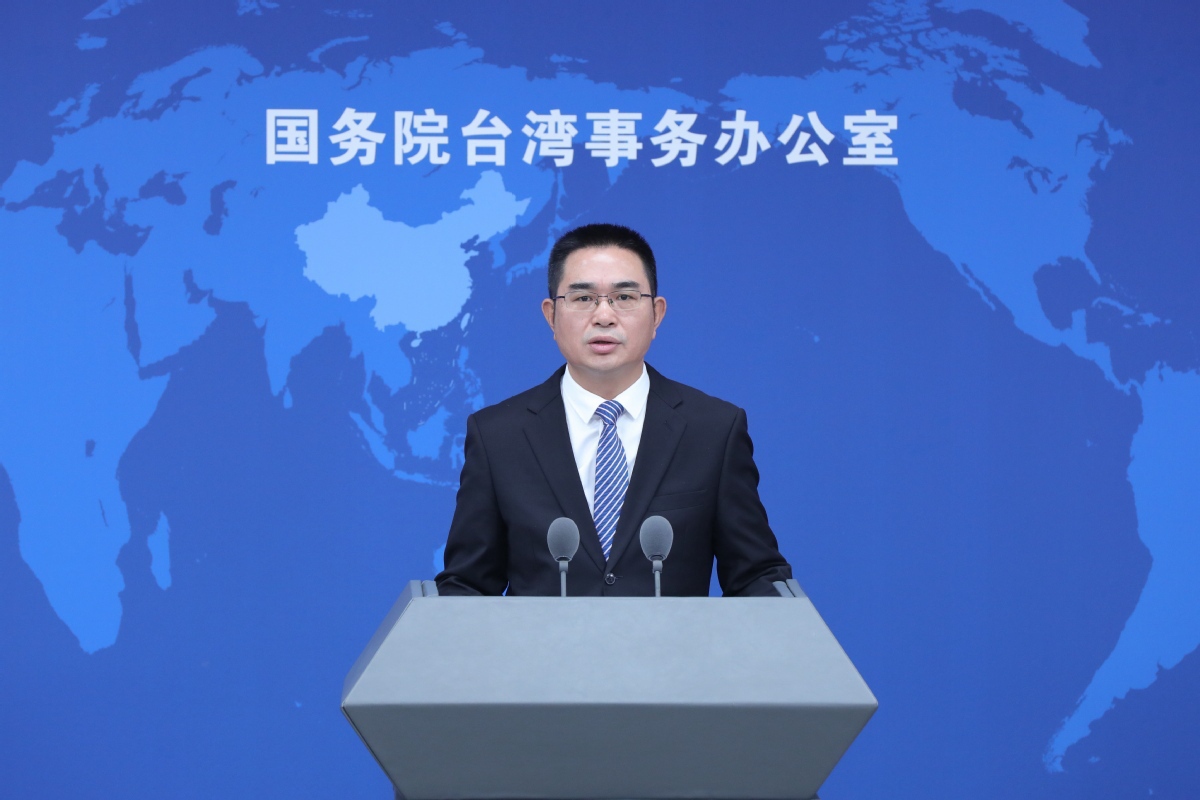Mainland slams Taiwan leader's fallacy

The Chinese mainland denounced on Thursday the advocacy by Taiwan leader Lai Ching-te of the "two-state" fallacy in a speech, saying the stance would exacerbate tensions across the Taiwan Strait and seriously undermine peace in the Strait.
In a speech at an event on Thursday, Lai reiterated his "pro-independence" stance that the two sides of the Strait are separate countries, with more deceitful rhetoric that challenges cross-Strait relations, experts said.
Chen Binhua, a spokesman for the State Council Taiwan Affairs Office, said that Lai's speech was filled with confrontational thinking and provocations, exacerbated tensions across the Strait, and will severely undermine peace and stability in the Taiwan Strait.
Lai is scheming to piece together justifications for splitting the country, Chen said, adding that "his separatist provocations are the root cause of turmoil and instability in the Taiwan Strait, which will bring disaster to the people of Taiwan".
"The current struggle against 'Taiwan independence' separatism is not a matter of systems, but a battle between unity and division," Chen said. Regardless of what Lai said, it cannot change the legal status of Taiwan as part of China and the fact that both sides belong to one China, he added.
Former Taiwan leader Ma Ying-jeou condemned Lai's advocacy of the "two-state" theory, saying that Lai's pursuit of a separatist path seriously violated the "constitutional provisions" and caused tensions across the Strait, which also led Ma to decide not to attend the event on Thursday.
"He is truly a troublemaker," Ma said, adding that there are growing global concerns about Lai's approach, including criticism from international media and survey reports suggesting that Lai's provocations exceed those of his predecessor Tsai Ing-wen.
Ma sternly urged Lai to reconsider his stance, prioritize the well-being of all Taiwan residents, abandon the "two-state" theory, and avoid putting Taiwan people in jeopardy.
Li Zhenguang, a professor of Taiwan studies at Beijing Union University, said that in Lai's speech, there was a clear sense of hostility toward the mainland's system, society and even its future development. Lai's statement in his speech that "the Republic of China and the People's Republic of China are not subordinate to each other" was a typical expression of the "two-state" theory and even sounded somewhat hysterical, Li said.
Regarding Lai's remark that "the PRC has no right to represent Taiwan", Li said that United Nations General Assembly Resolution 2758, adopted in 1971, resolved the issue of China's representation, making clear that the People's Republic of China represents the whole of China, including Taiwan, in the international community. While Lai emphasized the need for peace across the Strait, his promotion of the "two-state" theory is evidently "poison" to cross-Strait peace, and is a path toward confrontation, not a solution to problems, the professor said.
Zheng Jian, a professor of Taiwan research at Xiamen University, said that under the guise of so-called "peace, democracy and goodwill", Lai's speech employed even more insidious and deceitful rhetoric in promoting the "two-state" theory.
Just five months into his term, Lai's words and actions indicate that he is firmly set on a path toward war, Zheng said.
Foreign Ministry spokeswoman Mao Ning said on Thursday that the one-China principle is a fundamental norm of international relations and a consensus of the international community.
Taiwan has never been a country and can never become one, so the so-called "sovereignty" does not exist, Mao said. She urged foreign politicians who visited Taiwan to correct their wrong words and actions, stop interfering in China's internal affairs, and stop indulging and supporting "Taiwan separatism".
